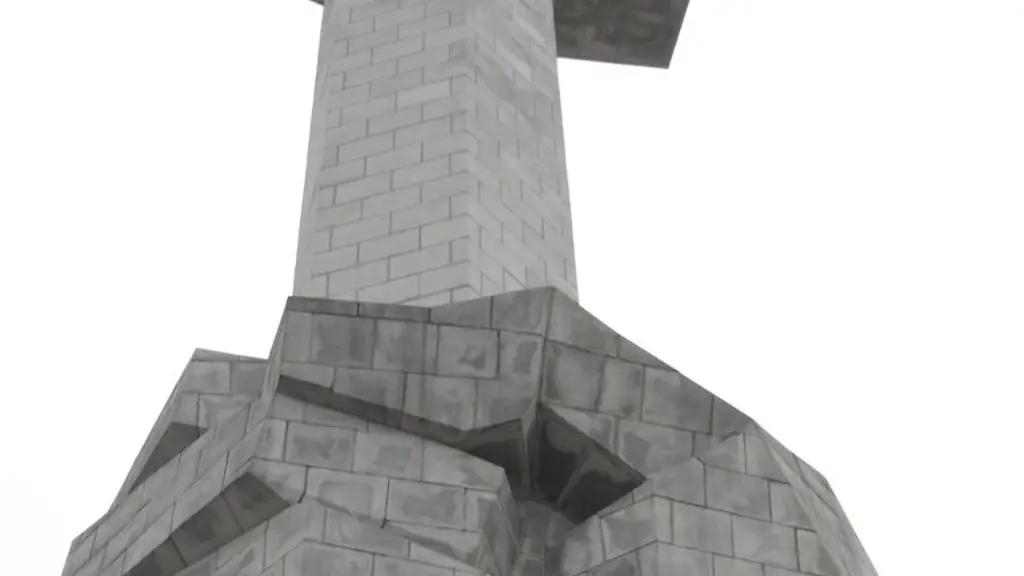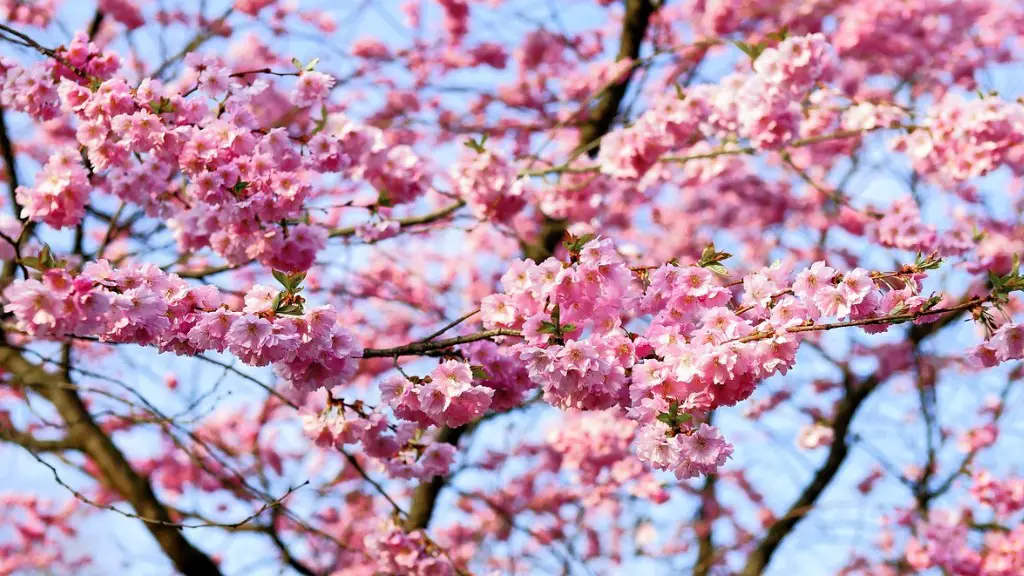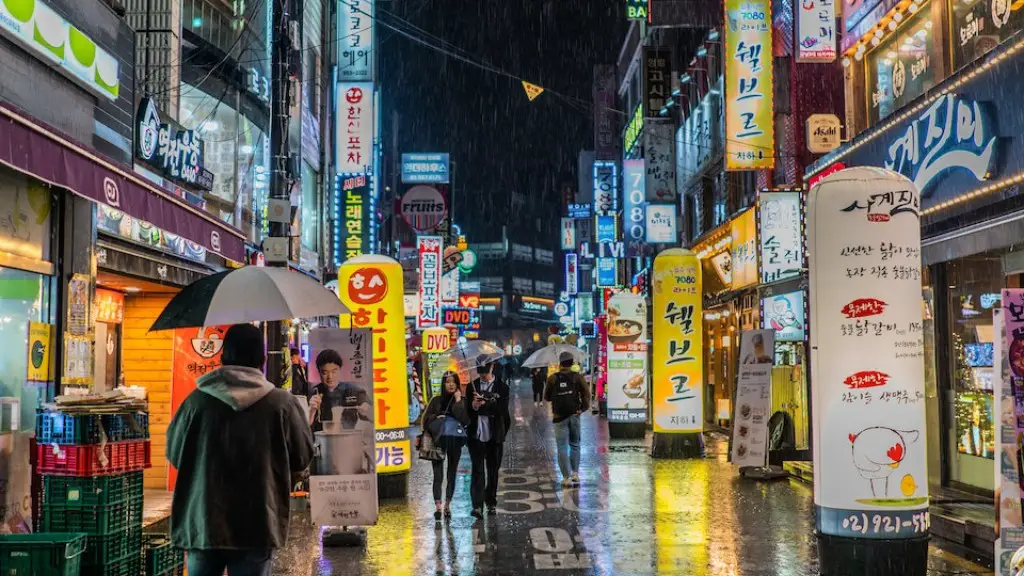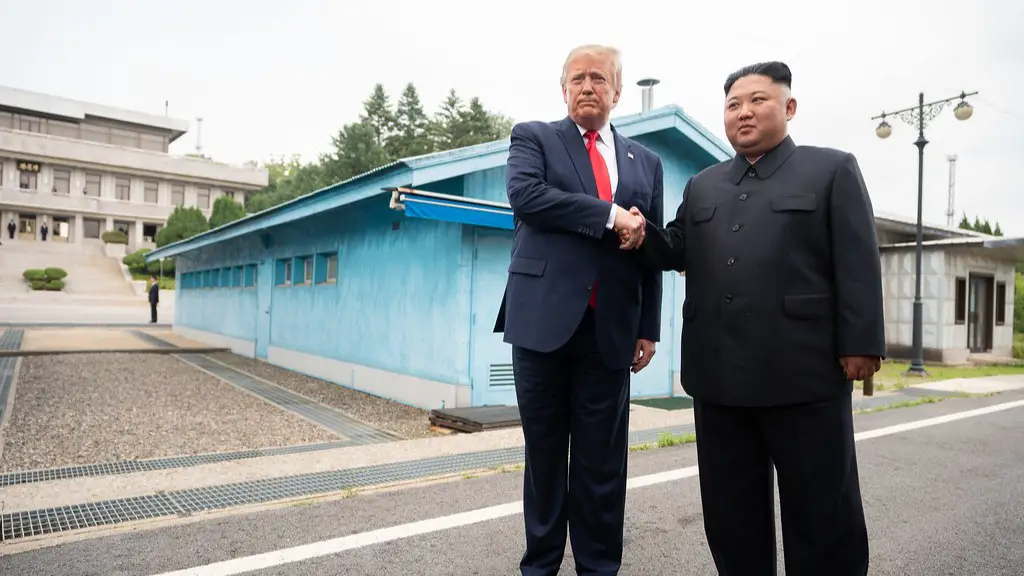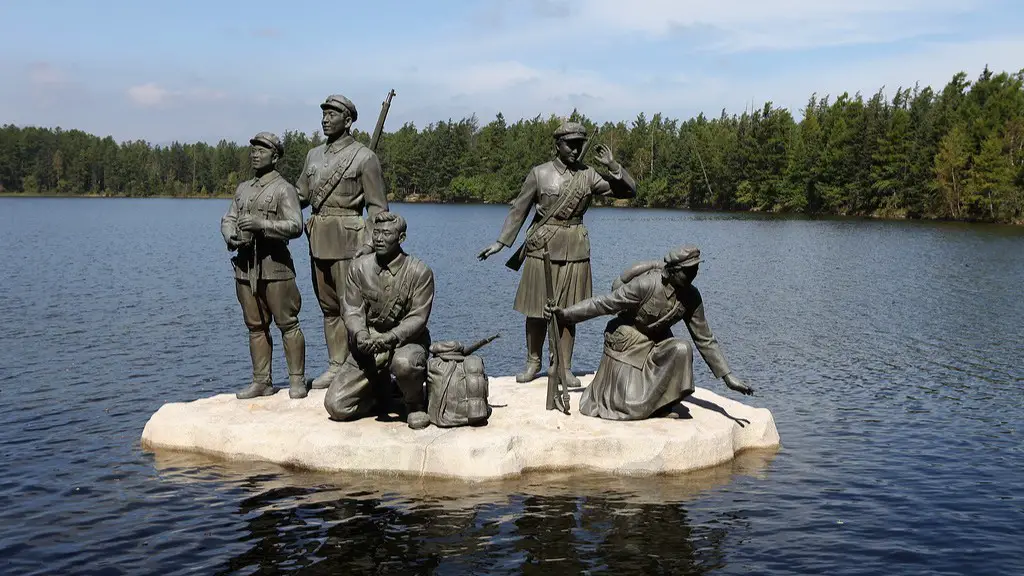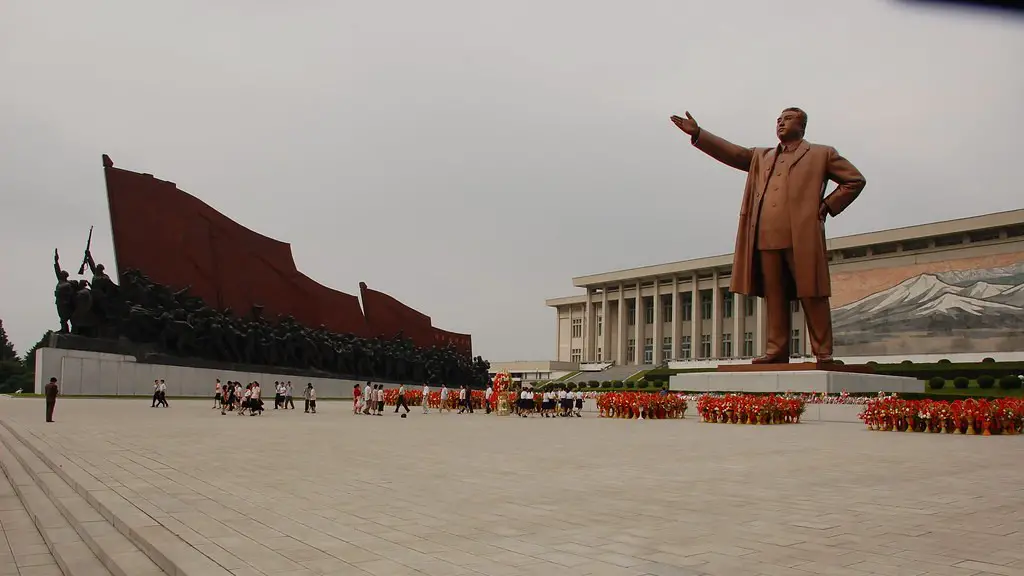In spite of international sanctions, North Korea’s economy has shown signs of growth in recent years. GDP per capita has quadrupled since 2000, and some estimates suggest that the economy has grown by as much as 7-8% a year since 2012. The country has rich reserves of minerals and metals, and its main exports are coal, iron ore, and textiles.
However, the economic situation in North Korea is still very dire. Most North Koreans live in poverty, and the country is heavily dependent on food aid from the international community. Sanctions have also hit the North Korean economy hard, and it is estimated that the country has lost out on billions of dollars of potential foreign investment.
The economy in North Korea is based on state-owned enterprises and collectivized farms. The government centrally-plans the country’s economic development goals and implements policies to achieve those objectives. North Korea’s economy is heavily reliant on foreign trade, specifically with China. The country also relies heavily on foreign aid to keep its economy afloat.
What kind of economy does North Korea have?
The North Korean economy is based on the centrally planned Juche economic system, which was first developed in the 1950s. The key features of this system are the following:
-The state owns and controls all major means of production, including land, labor, and capital.
-The state sets all economic goals and plans, and allocates all resources accordingly.
-The state controls all prices and wages.
-The state provides all social services, including education, healthcare, and housing.
Despite these centrally planned features, there has been a gradual move towards more market-based methods of allocation in recent years, particularly in the agricultural and construction sectors. However, the overall direction of the economy remains centrally controlled.
In 2021, there were reports of widespread starvation in North Korea. North Korea has a command economy, which is common among communist nations. The government has complete control over all monetary exchanges, causing the economy to remain stagnant due to a lack of competition between businesses. The lack of competition also results in a lack of innovation, as businesses have no incentive to improve their products or services. This, combined with the government’s poor management of the economy, has led to widespread poverty and hunger in North Korea.
Does North or South Korea have a better economy
This is a staggering difference and it is clear that South Korea is far ahead of North Korea in terms of economic development. This is likely due to a number of factors including South Korea’s embrace of capitalism and free market principles, as well as its close relationship with the developed world. In contrast, North Korea has a centrally planned economy which is much less efficient, and it is isolated from the rest of the world. This has resulted in a much poorer standard of living for North Koreans.
North Korea’s economic freedom score is 29, making its economy the least free in the 2023 Index. North Korea is ranked last out of 39 countries in the Asia–Pacific region. North Korea continues its isolation from much of the rest of the world. Based on limited available information, North Korea’s economic freedom score is 29. North Korea ranks last out of 39 countries in the Asia–Pacific region.
Does North Korea pay taxes?
According to North Korea, they are the only tax-free country in the world. They don’t have any domestic taxes and claim that their people don’t have to pay any taxes. This is likely because the government controls most of the country’s economy and doesn’t allow private enterprise. As a result, there aren’t many businesses or individuals who would be subject to taxation.
The country is economically and culturally isolated, as many North Koreans suffer from malnutrition and live in extreme poverty. North Koreans go to work every day on farms, in factories, and in the capital of Pyongyang, but many are unable to make a decent living.
Do North Koreans have Internet?
As of 2022, most North Koreans will only have access to Kwangmyong, the state-run intranet system. This is because the government strictly limits internet access for its citizens. Only a small number of North Korean elites are allowed to access the global internet. This means that most North Koreans will be cut off from the rest of the world in terms of information and communications.
The middle class in North Korea receives sufficient food and occasional new clothes. Most people, however, struggle to survive. Half of the nation’s 24 million people live in extreme poverty. North Korea’s annual GDP per capita is $1,800, making it 197th in the world and only 2 percent of South Korea’s.
What is the unemployment rate in North Korea
Unemployment in North Korea has been on the decline in recent years, however it is still a problem for many people in the country. The unemployment rate for 2021 was 259%, a 033% decline from 2020. This means that while the number of people without work has decreased, there are still a large number of people looking for jobs. The government is working on creating more jobs and providing training for those who are unemployed, but it will take time to improve the situation. In the meantime, many people are struggling to make ends meet.
You can buy a wide variety of unique North Korean products when you visit the country. These products include coins, stamps, hand painted posters, books written by the “Great Leaders”, cds, videos (eg North Korean movies), t-shirts, and Korean traditional products including alcohol and cigarettes. All of these products are made in the DPRK, so you can be sure that they are of high quality.
Why is North Korea dark at night?
Since the mid-1990s, North Korea has been in darkness due to the lack of fuel flowing from the Soviet Union. The hermetic country has been struggling to cope with the lack of resources and has been forced to rely on other countries for help.
North Korea is heavily dependent on trade with China, which is its largest trade partner. However, North Korea itself ranks relatively low as a source of imports to China. This is due to international sanctions against North Korea, which have decreased the overall official volume of trade between the two countries.
Is North Korea a stable country
North Korea has remained stable for more than a decade in spite of predictions that it would not. The Workers’ Party of Korea maintains a monopoly on political power and Kim Jong-il remained the leader of the country until 2011, when he first gained power following the death of his father.
North Korea is one of the world’s most centrally directed and least open economies, and it faces chronic economic problems. Industrial capital stock is nearly beyond repair as a result of years of underinvestment, shortages of spare parts, and poor maintenance. The economy is heavily dependent on imports of fuel, food, and other basic commodities.
Can you drink in North Korea?
In North Korea, it is not uncommon for people to drink heavily and there are no restrictions on alcohol consumption. Soju is the most popular alcoholic beverage and it is made from rice, wheat, or barley. While South Korea, China, and other East Asian countries have similar drinking cultures, North Korea is unique in that heavy drinking is considered a national pastime.
It is estimated that only about a quarter of North Koreans have access to basic health care, and that number is likely even lower when considering those who live in rural areas. This is due in part to the fact that many health care facilities have been closed down due to a lack of funds. In addition, those who are able to access health care often face long wait times and a lack of essential medications. The situation has only been exacerbated by the COVID-19 pandemic.
Final Words
The economy in North Korea is centrally planned and based primarily on agriculture and light industry, with heavy military expenditure. The country has very little foreign trade and relies heavily on international aid. Sanctions and the collapse of the Soviet Union in the early 1990s led to a severe economic downturn. In recent years, North Korea has made some progress in improving its economy, but it continues to face significant challenges.
Overall, the economy in North Korea is not doing well. The country is facing many issues, such as a lack of foreign investment, a lack of resources, and high levels of corruption.
